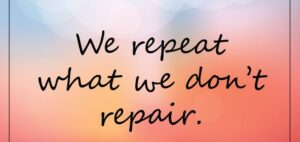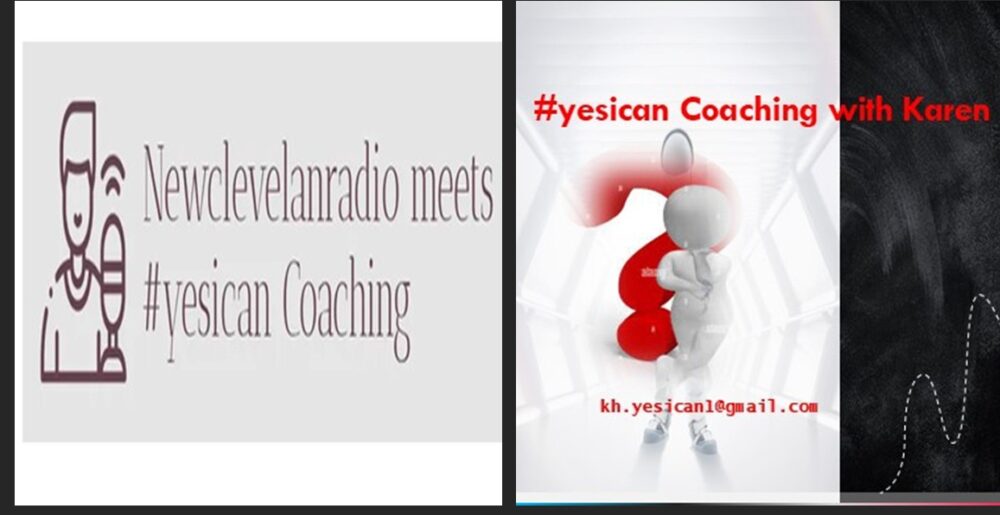Sharing Thoughts
now browsing by category
IF the POTUS Can Share his Thoughts, SO CAN I!
 Before I begin my day I have to get something off my chest – How Can We Have an Imbecile (per the dictionary, “a person affected with moderate intellectual disability,” a fool, an idiot) be a world leader as POTUS. Yes, I am talking about Donald Trump! I am not holding back because he is so ignorant when it comes to ‘reality’ and he has a following of minions that claim they want change (and climate change is not real!) and only this so-called IMBECILE can provide that for them. My question is other than promises what has he changed for you? He has not made America GREAT? He has, however, made the USA a laughing stock in the world as we know it! My momma once told me not to trust the snake oil salesman and that is DJT.
Before I begin my day I have to get something off my chest – How Can We Have an Imbecile (per the dictionary, “a person affected with moderate intellectual disability,” a fool, an idiot) be a world leader as POTUS. Yes, I am talking about Donald Trump! I am not holding back because he is so ignorant when it comes to ‘reality’ and he has a following of minions that claim they want change (and climate change is not real!) and only this so-called IMBECILE can provide that for them. My question is other than promises what has he changed for you? He has not made America GREAT? He has, however, made the USA a laughing stock in the world as we know it! My momma once told me not to trust the snake oil salesman and that is DJT.
Donald only chooses to listen to people who agree with him, and he believes that is what makes him smart. However, agreeing with another person without knowing what you are agreeing too is dangerous. Did you ever go to your parents and tell them you wanted to do something because your friends were doing it and their response was; if your friends jump off a bridge, would you? (My answer would be no because I am fearful of bridges – what would or was your answer?)
Yesterday DJT claimed Joe Biden is unfit to be President (the pot calling the Kettle Black.) He wants Biden to be checked out physically and mentally – excuse Mr. Imbecile, a majority of people (including your family member, your niece) claim you are unfit! Why don’t you get checked out and we can compare the results? All mr. donald trump does is ridicule people.
This morning it was noted that HEIR PRESIDENTE’ who I call IMBECILE believes or wants us to believe COVID will just go away! Even a grade-school child cannot believe a statement like this. DJT is not a scientist, nor does he hold any degree in medicine, biology, or chemistry to conclude his idiotic statement. It is statements like this that are killing us!
Please stop believing when he speaks this nonsense, follow the lead of the medical/scientists that are racing against the clock to conquer this VIRUS! Be smarter than him and don’t fall for his BULL SHIT LIES!
Register to Vote if you Have Not! And Vote BLUE – that means, get him out of the Whitehouse before he has it painted BLACK. In this case, BLACK would be an insult to our intelligence!
What are Healthy Boundaries – Kristi Horner – Courage to Caregivers
Healthy boundaries have always been an important part of self-care, but in these weird, pandemic days of sheltering-in-place, many of us may be feeling uneasy about the boundaries we are having to maintain just to stay safe.
That’s how I felt this week as we celebrated my sister’s birthday and her talents at an opening for her most recent artwork. As we maintained our physical distancing, the time came for my two sisters and me to take a picture together, and it was heartbreaking. All I wanted to do was give both of my sisters a big hug, but I couldn’t.
We understood that our physical distancing would help keep us healthy, but as I say about so many things when it comes to self-care, it was hard.
Even in so-called normal times, maintaining healthy boundaries can be hard. But it’s a necessity for self-care, whether they’re mental, physical, or emotional boundaries. According to PsychCentral.com, mental boundaries apply to our thoughts, values, and opinions; physical boundaries pertain to our personal space, privacy, and body; and emotional boundaries involve separating our emotions from someone else’s. Healthy boundaries can protect you from feeling guilty for someone else’s negative feelings or problems, or from taking others’ comments personally.
Here are some ways to set and maintain healthy boundaries:
- Examine your current boundaries (or lack of boundaries) with significant people in your life.
- Say “no” to something you don’t want to do or that makes you uncomfortable. You don’t have to explain or justify the “no.”
- Use “I” language. Talk about how you feel, not how someone else is making you feel. Say, “I need a few minutes alone after work,” instead of saying, “You have to stop bothering me as soon as I get home from work.”
- You may need to set consequences if the other person is unwilling to respect the boundary, but you must be willing to follow through, or the boundary is useless.
- Recognize not only your own boundaries but also the boundaries of others, and strive to respect and honor those boundaries.
Now more than ever, no one should judge us about the boundaries we set to make us comfortable. We need to be respectful of each other and the boundaries that keep all of us healthy – you, me, and those we love.
Caring together,

Kristi Horner
Founder and Executive Director
Courage to Caregivers
Barbara Rose Brooker – I love how you Advocate for Age – All AGES = Living Life
 Please click on this link and absorb her wisdom https://medium.com/@barbarrose/age-is-a-billion-dollar-business-c3e01b7e3751
Please click on this link and absorb her wisdom https://medium.com/@barbarrose/age-is-a-billion-dollar-business-c3e01b7e3751
Barbar is 83 and wants to be a Movie Star – I, Karen Moss Hale, am 70, and I want to have the Number 1 Podcast with Barbara Rose Brooker https://www.spreaker.com/show/the-rant-with-barbara-rose-brooker_1
Courage to Caregivers Kristi Horner
We’re on to a new theme this month – relationships – and our first topic is connections. Unfortunately, social distancing is getting all of the publicity these days. But while physical distancing remains important during this pandemic, maintaining our social connections is also important, especially for caregivers.
Connecting with others is a basic human need that is hardwired within us from birth. As caregivers, we gain a lot from our social connections, including emotional support, respite care, and a sounding board for our concerns, just to name a few of the benefits. As this article notes, connecting is one of Mental Health America’s 10 tools that can help you feel stronger and more hopeful. Research shows that feeling socially connected can increase happiness, improve health, and lead to a longer life.
Gideon Rosenblatt notes that connections are different from relationships. Connections, or points of contact, can take many forms. They typically involve some kind of action and are usually time-constrained. Relationships are about the experience of connecting with someone over an extended period of time. “One way to think of connections is as a kind of handshake between two parties,” he says.
Sometimes, a connection can take the form of a heart-to-heart, spill-it-all talk. Other times, just a laugh-out-loud e-mail can do wonders. Spending time connecting with others in pleasurable activities can be a welcome release from our daily worries.
And we can all learn something from our connections. During the past four years, as we’ve launched Courage to Caregivers, I’ve met some extraordinary people along the way, and every one of them has helped me better understand the unique challenges of caregivers. I’ve also learned how to listen better and how to be a better human.
That’s why it’s so important that we continue to connect while we also continue our physical distancing. I like to think of this time as an opportunity to strengthen our social solidarity. We need all of the solidarity we can get right now, and that goes not only for caregivers but also for those we love who are living with mental illness.
In the spirit of solidarity, if you’re looking for a new way to come together and expand your connections, consider joining one of our programs at Courage to Caregivers in our new virtual format. We’d love to support you and have you join our community.

Kristi Horner
Founder and Executive Director
Courage to Caregivers
Words from Jeannie Ralston – Thanks for Your TIPS!
https://thenexters.org/
 The big holiday is upon us, and if you’re like me, you’re not going anywhere. Our friends’ Fourth of July parties have all been canceled down here in Texas, so I will be hanging out with the fam, playing card games, and shooting off our own fireworks. So not exactly quiet. Happy Fourth to all!
The big holiday is upon us, and if you’re like me, you’re not going anywhere. Our friends’ Fourth of July parties have all been canceled down here in Texas, so I will be hanging out with the fam, playing card games, and shooting off our own fireworks. So not exactly quiet. Happy Fourth to all!
Here are 4 bits of news from the NextTribe offices:
1. We learned about the 4 pillars of the “house of health” through menopause and beyond during our Nutrafol-sponsored Embrace the Change talk on fitness, energy and sleep.
Read all about it here.
2. A lot of us have been embracing our gray, out of necessity, during the pandemic. We say don’t hide away your gray, strut it. Win prizes and recognition by posting photos with hashtags: #NextTribe and #HoorayforGray.
Details here.
(Members are eligible to win bigger prizes.)
3. We’re setting up our summer virtual events. The first one is on July 16th with Erica Heller, editor of One Last Lunch and yes, Joseph Heller’s daughter, and Muffie Meyer, a director, and editor of Grey Gardens.
Details here.
4. I’m very proud that so many truly accomplished women are being considered for the VP slot on the Democratic ticket. Which one do you think will make the best candidate?
Stay safe all, and wear a mask if you’re out and about.
–Jeannie Ralston
As Joel Says: Quacks Like a Duck
Sunday – June 21, 2020
I think it was my paternal grandfather, Abe, who first laid this simple piece of folk wisdom on me, “If it looks like a duck, and quacks like a duck, most likely…”. Navel contemplators may have a burning passion to delve deeper into the spiritual or philosophical possibilities of that perception, but I’m pretty sure, most of the time, the feathery creatures, attempting to look adorably hungry to the strangers disregarding the “Do Not Feed the Ducks” sign, are ducks. Ergo, racists are racist, liars lie, thieves steal, politicians spin, guns kill, bullies abuse and everyone poops. At this unique moment in time, at the confluence of pandemic and racial unrest and mad king despotism in the White House, most of us are experiencing a moment of widespread clarity where it may just be possible to clean our very messy and disingenuous slate, if only we take this opportunity to stop trying to reimagine the obvious. It is better to be at peace than at war. It is better not to harm the life-sustaining nature of our planet. It’s cool to be kind. We can, should, must do better while abiding zero tolerance for inept, corrupt, ill-thinking public servants at every level of governance. We are all created equal and everyone’s life is better when life is better for everyone. Certainly, BLACK LIVES MATTER! Equally, blackened hearts DO NOT! Quack
Lori Sokol _ Thankyou_ A Gift for Her Father
When you believe that #Black Lives Matter – you share your story – https://womensenews.org/2020/06/a-gift-for-my-racist-father-a-biracial-nephew
Courage to Caregivers_Kristi Horner 6_18_20
Now more than ever, we all need to take time to recharge. This week’s topic – sleep – is the body’s natural way of recharging our emotional, mental, and physical batteries every night.
Yet, studies show that one-third of American adults don’t get the recommended seven to nine hours of sleep each night. Just getting to sleep is an issue for many people. And physical problems, environmental disturbances, or emotional concerns can often interrupt a good night’s sleep.
I’ve had plenty of issues with sleep, and I’ve found that having a consistent routine around sleep hygiene has made a huge difference. Here are some things I do to help me get to sleep:
- Get plenty of exercise during the day. My goal is to get 3,000 to 10,000 steps a day.
- Turn off all technology at least one hour before bedtime … my goal is two to three hours before bedtime … and no TV in the bedroom!
- Limit caffeine. I’ve tried this in many ways, and no caffeine after my morning coffee works best for me.
- Don’t eat after 8 p.m. Did you know that some foods (citrus, spicy, fatty, and heavy) can disrupt your sleep? I’ve set a goal to “close” the kitchen after dinner.
- Control the lighting and temperature. I’ve removed just about all the ambient lighting in the bedroom and turned down the thermostat a notch. Did you know that cooler temperatures help you sleep better?
- Once I’ve checked the above boxes and tucked myself in to bed at night, I say a prayer of gratitude for all the good in my day.
Another way to improve sleep quality is to focus on your breathing. One thing we’ve heard over and over again from the participants in our breathing meditation classes is that they get their best night’s sleep of the week after the classes! That’s because of the great work of our facilitators – Polly, Sarah, and Cathy.
Here are some breathing techniques that have helped me:
- 2:1 Breathing – There are different variations of this, but in all of them, the exhale is twice as long as the inhale. For example, breathe in for a count of four, then exhale for a count of eight. Or try a five count for the inhale and a ten count for the exhale. Just be sure the ratio is 2:1. This stimulates the relaxation response and prepares the body for sleep.
- 4-7-8 Breathing – This is the same as above, but with the added step of retaining the breath for seven counts before you exhale.
I can tell you from experience that if I wake up at night, focusing on my breath instead of whatever is repeating through my head can help me get back to sleep.
Maybe it can help you, too. Consider joining us for a breathing meditation class soon. We’d love to have you!

Kristi Horner
Founder and Executive Director
Courage to Caregivers
Happy ANNIVERSARY Helen & Lanny Light 6_14_81

Today is a SPECIAL DAY – one of my truly BFF’s and her Prince Charming got married 39 years ago today (and thanks to Prince’s mother the beautiful Iris,) I met my Prince Charming the day before at their rehearsal dinner!
I met Helene right after I separated from my ex-husband, she became not only my friend but also a sister, cousin, aunt, and sometimes mother of advice. Helene is the best friend everyone wants. She understands you (me), and even though we can go months and sometimes years without a real conversation, our connection is honest and robust. I have known my BFF 40 plus years, and we will continue this friendship for eternity.
It’s a funny story about how I met Richard the day before their wedding. Rich, the friend of the groom (Lanny), was also the videographer for their wedding, and in my life, at that time, I had a plant and floral business, so I was their floral designer as well. As we met at the Temple for the rehearsal, in walks Richard in a white suit – reddish cropped beard – looking like he owns the place and I mistake him for the Rabbi (only to learn later he was not, and he also wasn’t Jewish, OH MY!)
Rich and I collaborated on the ceremony details, and at the end of rehearsal, I went home while the rest of the party went to dinner. (This was in the days before Cell Phones!) When I walked into my townhouse, I heard a message playing on my answering machine, and it was Lanny suggesting I come to the dinner, Richard requested my presence, and Iris was quick to accept his wish. Without thinking twice, I turned around and went to the dinner.
At dinner, I felt like Richard, and I had known each other for years. We sat with four of his friends, and they included me as if we were all life-long companions. After the dinner, the guys separated and went to a mini bachelor party held in the hotel room of one of the male guests, and the women went back to Helene’s place, and chit chatted. I don’t think an hour elapsed before Rich and Will (Lanny’s brother-in-law) came over to Helene’s room, suggesting that it may be more fun hanging with the females, and slowly the other men converged on the room too.
By this point, Rich and I were on a mini date.
The next morning, I had to get up early to pick up the flowers and set-up the Temple (the Chuppah), and my new pal Rich, helped. That whole day we were inseparable, and when Helene arrived at the Temple to get dressed and have me prepare her make-up, she was smiling from ear to ear. Although she wasn’t sure, Richard was my perfect Prince Charming; she had witnessed the immediate connection. She gave me some words of wisdom, “BE CAREFUL!”
The wedding was beautiful, and the appropriate number of happy tears were shed. Rich and I took a stroll down the aisle right after I fell catching the bridal bouquet. I could say the rest is history because June 13, 1981, Rich and I met, and now we have been married 36 years because of the union between two of our friends and the huge heart of Iris Light.
Helene and Lanny have been extended family since that day 39 years ago, attending family events as well as accepting the honor to be our son’s God Parents.
In addition to Lanny and Helene, we gained Will and Cindy Metzger (brother-in-law and sister to Lanny.) We have been blessed because of their union on this day in 1981.
If you had told me on June 12, 1981, I would meet my Prince Charming, and thirty-nine years later, after many detours in our lives, the four of us would still have a lasting relationship despite – Sickness, Health, Richer and Poorer we are still standing strong!
Happy 39 years to Helen and Lanny Light, may you continue to LOVE!
Make History with the Virtual AgeMarch™
 Why should you want to Make History with the Virtual AgeMarch™ on 9/12/20? Because the AgeMarch™ is for you – ONLY YOU CAN HELP PREVENT AGE DISCRIMINATION! At some time or another, we have been faced with prejudice or discrimination based on our birth date. It is like the story of the Three Bears, either it is too hot (TOO OLD) or too Cool (TOO YOUNG), rarely is it just or right!
Why should you want to Make History with the Virtual AgeMarch™ on 9/12/20? Because the AgeMarch™ is for you – ONLY YOU CAN HELP PREVENT AGE DISCRIMINATION! At some time or another, we have been faced with prejudice or discrimination based on our birth date. It is like the story of the Three Bears, either it is too hot (TOO OLD) or too Cool (TOO YOUNG), rarely is it just or right!
Too often age or the appearance of it involves treating a person less favorably and that is not fair, nor is it the justice we all deserve to follow our passion and or perform a job. People should not be discarded because someone believes with age comes an inability to function, the number of years someone has lived should not be a factor. With age often comes experience, a worthwhile asset.
My friend, Barbara Rose Brooker, founded the AGEMARCH.org in 2010 and she has successfully brought people together to celebrate and proudly promote their AGE of ABILITY. This year on the 10th Anniversary we will be hosting a VIRTUAL AGEMARCH, allowing people from around the world to attend. We want you to join us.
MAKE HISTORY!
Sign up on www.agemarch.org, for the first GLOBAL VIRTUAL AgeMarch in history. This will be on September 12, 2020 – AgeMarch was FOUNDED by Barbara Rose Brooker in 2010. Send your photo and sign with your age printed on it. Also, check it out at https://www.facebook.com/barbara.r.brooker
You will be on global zoom (YouTube) holding up your sign and each of you will share your story about why you’re on AGE MARCH. Help change our anti-age culture into a pro-age culture, age equality for ALL, promote a generation where age doesn’t count, and where people aren’t defined by age!
JOIN TODAY.

 D5 Creation
D5 Creation